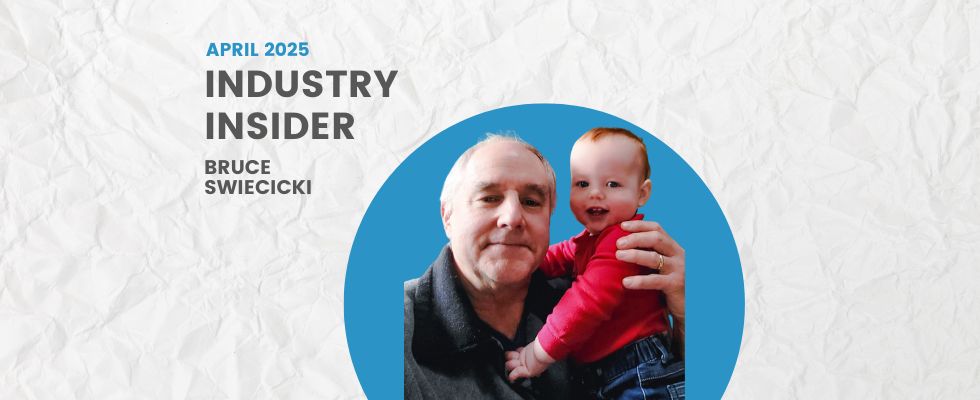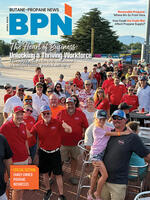
Describe the role you’ve held at NPGA.
My role with NPGA has been to advocate on behalf of our members, most of whom provide energy in the form of propane to their customers. Specifically, my work involves participating in the writing and updating of the model codes and standards that are continually evolving to incorporate the latest safety and technological improvements that benefit the propane industry. Most of NPGA’s work in this area is done through the Technology, Standards & Safety (TS&S) Committee. I have been the administrator of this fine group of people from 1993 until we began transitioning last year to my colleague Chris Wagner, who I believe will take our advocacy efforts to new heights. In addition to committee work, I was also available to NPGA members for technical and interpretive assistance on NFPA 58 and all other codes and standards that are used to regulate the propane industry.
Congratulations on your retirement! What would you say is the greatest lesson you’ve learned in your career?
Probably the most useful lesson I’ve learned is the realization that there is so much I don’t know about the propane industry. There are lots of commonalities between our members, but the various procedures and operations that take place on a day-to-day basis within the industry can vary [across companies and regions]. One of the responsibilities of my position was to ensure the codes and standards used to regulate the industry remain safety-focused, but not so restrictive that they cannot allow innovative approaches to safely conducting business.
How has the industry changed over your career? Where do you hope it goes in the future?
When I first started, the primary code was NFPA 58. Throughout my tenure, major modifications were adopted, such as the OPD valve, internal valves for bulk plant containers, cathodic protection for underground containers, plant maintenance and fire safety analyses, food trucks and a chapter on over-the-road vehicles, to name just a few. To a large degree, it seems that NFPA 58 is becoming more of a settled document, with no major impactful changes in the offing. Nowadays, the focus is shifting to standards that can accommodate renewable propane to level the playing field when competing with the electrification movement and the need to reduce greenhouse gas emissions. These are important issues because ultimately, the codes we work on now will eventually be adopted into law by states and local jurisdictions. Especially with the new U.S. administration in place, the entire industry is hopeful that we can build on that foundation and continue to explore and develop new ways to serve customers with propane.
How did you get your start in the propane industry?
I responded to an ad in the Chicago Tribune in the fall of 1993. NPGA was then headquartered in the Chicago area. My first interview with Dan Myers went pretty well. I was a mechanical engineer but, being a city boy, was not too familiar with propane. But I did have a background in code writing, having worked for the Building Officials and Code Administrators for the previous 10 years. Dan invited me back for a second interview and included in that interview was a friendly gentleman who was the NPGA treasurer at the time. That person was Sam McTier, and it was really Sam who advised Dan to hire me. I was fortunate to know and work with Sam, a giant in the propane industry, and he became a mentor to me throughout my career.
What do you see as some of your greatest personal accomplishments?
Within my role at NPGA, I’m very proud to have worked for and with the people on the TS&S Committee. The industry should be grateful for the time and commitment from these volunteers from small and large companies to serve the greater good by participating in a process that doesn’t necessarily draw the headlines, but nevertheless will have a lasting impact on the industry. Working with these individuals has led to some very successful outcomes.
Who has/have been the strongest influence(s) in your career?
Within the propane industry, I can name several individuals who have influenced me as I learned how to grow into this job. Bill McHenry, a marketer from Muskegon, Michigan, and Sam McTier, an engineer in the propane equipment business, were both teachers and mentors to me in the early days. Then, working with fine people like Gerry Misel, Rob Freeman, Leslie Woodward, Steve Gentry and Jim Zuck, we developed into one of the most potent NPGA advocacy teams on the NFPA 58 Committee.
What do you think would surprise someone about the work you did in your career?
I think it would surprise someone that I’ve never filled a propane container.
What lesson did you learn when you were younger that still influences your actions today?
I think saying “please” and “thank you” are integral to my philosophy of life. There are so many other possibilities for “my” atoms to be organized in this universe that the fact I am a conscious human being is not lost on me, and I hope to remain grateful with my last breath.
What’s something not a lot of people know about you?
When I sing karaoke, my name is Be-Bop.
What do you want your legacy to include?
“He wanted to always learn and become a resource for others.”
How do you plan to spend your retirement?
I am officially retired as of March 1 and will continue to do some work for NPGA and others as a consulting engineer. But that will be secondary to spending time with my wife, family and friends, and particularly Maverick Leo Chekirda, my only grandchild. I hope to remain physically active, and I’ll do some volunteering in the community as well. Plus, there will always be things to keep me busy around the house. Thank you!


